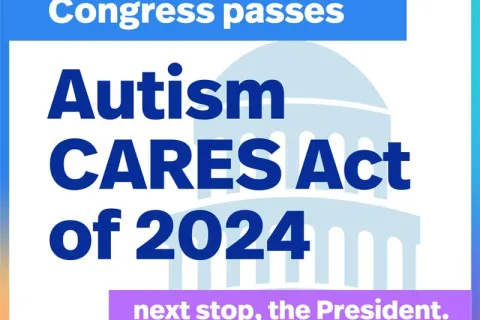Autism Speaks hosts experts and advocates to address health disparities in autism
December 9, 2019WASHINGTON, D.C. – Autism Speaks will host autism researchers, public health leaders, government officials, self-advocates and family advocates on Dec. 10 and 11 in Washington, D.C., to discuss solutions to health disparities in autism care as part of its Thought Leadership series on issues of importance to the autism community.
“There are two main types of disparities we find in the autism community, and we are working to find solutions to close these gaps,” said Andy Shih, senior vice president of public health and inclusion for Autism Speaks. “First, we have disparities between demographic groups, such as racial or ethnic groups, socioeconomic status and geographic location, where people have barriers getting appropriate care. But we also see disparities in health care access and use for people with autism generally, compared with typical people as well as people with other disabilities.”
Public health research has found that children with autism have higher health care and mental health needs, higher health care costs, higher rates of hospitalization, lower quality of life and lower life-expectancy compared to children without ASD, Shih said.
Further, in low-resource communities, existing challenges related to access to care and quality and costs of care may be further exacerbated by cultural and linguistic differences, low health literacy and racial or other discrimination.
“Our goal is to bring decisionmakers and the community together to figure out how we can bring about more equitable health care for autistic people,” said Thomas W. Frazier, chief science officer for Autism Speaks.
Dennis Taylor, a graphic designer attending the meeting as a self-advocate, hopes the group comes away with a better understanding of autism and that he can learn about research or programs to share with the organizations he works with, such as Spectrum Works and ASPEN.
"Despite my diagnosis and behaviors that may seem different, I’m having a pretty normal life," said Taylor, who is developing an animated series based on his extensive knowledge of dinosaurs and is a consultant for an upcoming PBS animated series titled “Hero Elementary." "I believe I am a positive role model for people on the spectrum, showing the world that learning differences don’t have to hold you back."
The meeting’s keynote speaker will be U.S. Rep. Bonnie Watson Coleman, D-N.J., whose state’s autism prevalence of 1 in 34 children is the highest in the country, well above the national average of 1 in 59.
The nature of health care in the U.S., which is often coordinated across local, state and federal programs, leaves many people with autism to fall through the cracks across various agencies who administer autism or disability programs.
One important step toward closing these gaps will be linking the rich data available from health organizations and service agencies, said Shih. By mapping where in the system service needs are not being met and why, experts hope to come up with new solutions to improve access to care for all groups.
“Sharing the perspectives of everyone in the system will help us better understand these challenges, learn how to make the system work better, and enhance the lives of autistic people and their families.”








